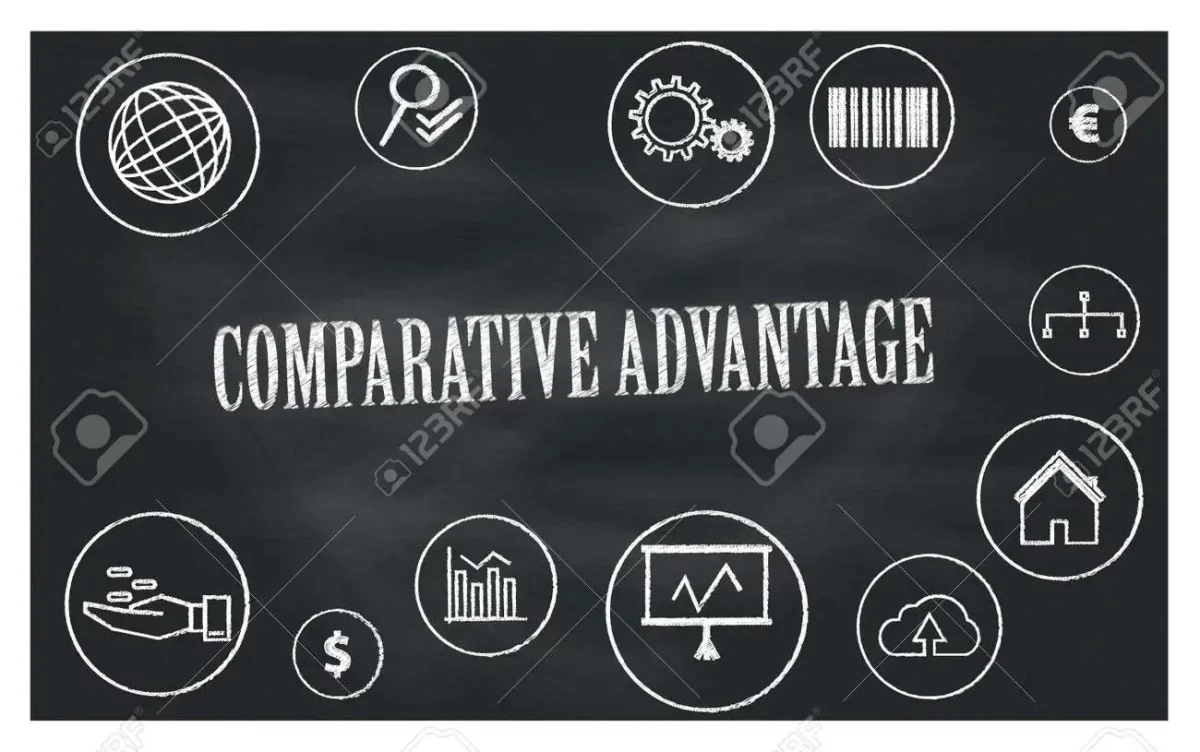Introduction
In the complex landscape of decision-making, our minds often rely on mental shortcuts and biases that can lead us astray. One such cognitive bias, deeply rooted in human psychology, is the Comparative Advantage mental model. Originally an economic concept, Comparative advantage refers to the ability of individuals, businesses, or nations to produce goods or services at a lower opportunity cost compared to others. However, this mental model extends far beyond economics, permeating our daily lives and affecting our choices in personal, professional, and public spheres. By understanding the concept of Comparative advantage and its psychological underpinnings, we can unveil the fallacies it brings and equip ourselves with strategies to make more rational decisions.
Defining Comparative Advantage and Its Relevance
At its core, Comparative advantage suggests that individuals or entities should specialize in activities where they have a lower opportunity cost, enabling them to benefit from trade and cooperation. This concept originated in David Ricardo’s work on international trade, highlighting how countries should focus on producing goods or services in which they have a relative advantage. While this economic principle initially addressed resource allocation, its underlying principles extend to a broader range of decision-making scenarios.
The prevalence of Comparative advantage in our daily lives is undeniable. From personal choices to business strategies and public policy-making, the mental model influences various contexts. However, its application is often flawed, leading individuals and groups to make irrational decisions contrary to their best interests.
Examples Demonstrating the Occurrence of Comparative Advantage
- Personal Life Decision: Sarah’s Career Choice Sarah, a talented musician with a deep passion for her craft, decides to pursue a career in finance instead. She believes that the job market offers more stability and higher financial rewards in finance compared to music. Although her comparative advantage lies in music, Sarah succumbs to the fallacy of Comparative advantage by prioritizing short-term gains over her long-term happiness and fulfillment.
- Business Scenario: The Competitive Obsession A company becomes fixated on outperforming its competitors in all areas, leading to a dispersed allocation of resources. Despite excelling in product development, they divert significant resources towards improving areas where competitors hold an advantage. In doing so, the company fails to leverage its true Comparative advantage, hindering its overall growth and profitability.
- Public Policy-Making: Trade Protectionism Governments occasionally implement protectionist measures, such as tariffs or quotas, to shield domestic industries from foreign competition. While this may seem like a way to protect local jobs, it often results in inefficiency and reduced consumer choice. Such policies disregard the principle of Comparative advantage by preventing countries from specializing in industries where they have a natural advantage, ultimately harming economic growth.
Mental Biases and Psychological Underpinnings
Several mental biases contribute to the prevalence of Comparative advantage in decision-making. The Endowment effect makes individuals overvalue what they possess, leading them to cling to their current activities rather than exploring potentially more advantageous alternatives. Anchoring bias causes individuals to rely heavily on initial information or ideas, preventing them from reevaluating their options and recognizing their true Comparative advantage.
Additionally, the Sunk Cost fallacy plays a role by influencing individuals to persist in activities that have consumed their time, money, or effort, even when it no longer makes rational sense. This bias can lead to missed opportunities to redirect resources towards activities where they hold a Comparative advantage.
Identifying and Avoiding the Fallacy of Comparative Advantage
To avoid succumbing to the fallacy of Comparative advantage, it is crucial to develop self-awareness and recognize when our decisions are biased. Here are some practical strategies to identify and mitigate the effects of this mental model:
- Reflect on Personal Preferences: Take time to reflect on your true passions, talents, and interests. Evaluate the decisions you make in light of your Comparative advantage to ensure alignment with your long-term goals and fulfillment.
- Engage in Diverse Perspectives: Seek out diverse opinions and viewpoints to challenge your assumptions. Actively engage in discussions with others who may hold different skills or perspectives to uncover potential Comparative advantages that you may have overlooked.
- Embrace Flexibility: Avoid becoming anchored to a particular path or course of action. Continuously reassess your decisions, remaining open to new possibilities and adjusting your strategies based on changing circumstances.
- Calculate Opportunity Costs: Analyze the trade-offs associated with your decisions. Consider the potential benefits and drawbacks of alternative choices, taking into account the long-term consequences and not solely focusing on immediate gains.
Conclusion
The Comparative advantage mental model, deeply rooted in human psychology, holds significant implications for decision-making processes. By understanding this concept and recognizing its biases, we can make more informed and rational choices in various areas of our lives. Whether in personal decisions, business strategies, or public policy-making, being aware of the fallacies that Comparative advantage may induce enables us to leverage our true strengths and pursue opportunities that align with our long-term goals. By breaking free from this cognitive bias, we can unlock our potential for success, satisfaction, and meaningful contributions to society.
